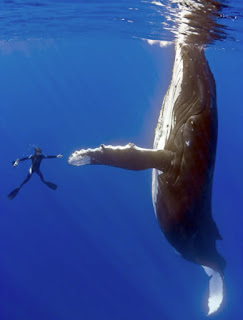We are Perplexing—by T.K. Thorne
We are perplexing beings.
I just finished reading Maus, a graphic book by Art Spiegelman banned in Russia and Tennessee. The author’s words and drawings depict his attempt to capture his father’s memories of living through the Holocaust. The young man is conflicted, unable to stand being around his eccentric, obsessive father and overwhelmed by what he learns his father experienced. It is raw and honest. I recommend it.
What seems unthinkable and impossible to understand is people believing other people are not human beings but vermin to be used and extinguished. That is what the Nazis believed, what slaveholders believed, and what many neo-Nazi white supremacists still believe. I imagine some members of minorities feel similarly. I don’t understand what Christian Nationalists believe other than America should be for them only. I’m unsure what they plan to do about the rest of us.
And that’s the point. We are all human beings.
We think and do these extraordinary thoughts and behaviors because we evolved not as rational beings but as emotional ones. Fight/flight and survival are our primary, cell-level drivers, not rationality.
Rationality is an overlay, a wobbly gift of the last layer of the brain to evolve—the neocortex, which contains the prefrontal cortex, where we analyze, plan, and make decisions based on reason rather than raw emotion. Emotion ran the show before that development. Emotion plays a vital role in behavior. (Danger = run or fight.) But reason developed to increase our ability to survive. If we observe and learn what has happened in the past, rationality allows us to predict the future, and we have a better chance if we can prepare for the future.
But that can go sideways.
For example, people around us can believe wacky things. Those things may not make sense if we examine them closely, but we are driven, for one thing, to please those important to us. We need to be part of a group/clan/family. It’s a hard-wired survival instinct. At some point in our history, we could be kicked out for not complying with the group. “Kicked out” meant the wolves ate you.

And, alas, we are not Vulcans. We easily slide into tribalism and can believe all kinds of stuff, regardless of its basis in reality (whatever that is, but that’s another story). Science has proved that a brain under enough stress will break. Any brain. All brains. (Snapping, America’s Epidemic of Sudden Personality Change, 1978, 1995 Conway and Siegelman)
Humans are a fraction of the last second before midnight on the 24-hour clock of our Earth’s existence. And we “just” developed our cerebral cortex. We aren’t sure what to do with it except write books (Yes!) and play with our toys. That play has created some wonderful, amazing things. There appear, however, to be some “whoops” attached to those wonderful things, like the possibility of screwing up the Earth and annihilating ourselves with our toys.
So, (1) we are not primarily rational beings, and (2) we are very young.
Is there hope for change?
Trying to apply rationality to answer that question (instead of my emotional instinct), I would say -YES. If it is true that we are not primarily or originally rational beings, it is also true that we are headed (however slowly) in the evolutionary direction of rationality. The fact that we are a very young species also implies that, with time, we will continue to add functional brain capacity that will nudge us toward traits that increase our survival ability.
The question is, will we survive long enough to get there?
In the current day, it is hard to imagine such change when terrorist organizations indoctrinate their communities with hatred from birth. Despair feels like the rational expectation.
But then there is what happened in Germany after WWII. Although the Nazi doctrine is far from dead (either in that country or others, including the United States)—their ideals are no longer mainstream.
By all rights, Japan should hate Americans after we dropped two atomic bombs on their civilian populations. They do not hate us. We are global partners.
Maybe there is hope for change.
But how do we change now without having to wait for evolution’s slow grind, the coin toss of whether someone pulls the nuclear trigger, we push the climate to a state of disaster, or maybe we all choke on plastic?
Jeddu Krishnamurti, an Indian philosopher, says we must first understand that we are connected to and, in a real sense, are all human beings.
He writes:
“To bring about a different society in the world, you, as a human being who is the rest of humankind, must radically change. That is the real issue, not how to prevent wars. That’s also an issue, how to have peace in the world, [but] that is secondary. . . the fundamental issue is—is it possible for the human mind, which is your mind, your heart, your condition, is that possible to be totally, fundamentally, deeply transformed?
Otherwise, we are going to destroy each other through our national pride, through our linguistic limitations, through our nationalism, which the politicians maintain for their own benefit, and so on and on and on.”
Krishnamurti suggests that the path to transformational change involves deep listening—to others, ourselves, and nature.
What is deep listening? I am not sure. I think I do it when I’m writing and allowing a character to truly be themselves. I think I do it when I pause to breathe in the scent of earth and bird song. When I allow the decision of compassion to guide me. I know a whole list of things it is not.
“Truth is a pathless land. Man cannot come to it through any organization, through any creed, through any dogma, priest or ritual, not through any philosophical knowledge or psychological technique.”
So, how do we find the truth that will free us from ourselves?
Let’s begin by turning our attention and focus to deep listening. We may not know exactly how to do it because it is a pathless land. And we will need to try repeatedly because we are all flawed human beings. But maybe we really can change. The first step is believing we can, believing that humanity can survive to become wiser, use our tools, toys, and our resolve to improve the world, and learn to cherish it, ourselves, and each other.
Maybe.
I hope we can. I hope we try.
![]()
T.K. Thorne writes about what moves her, following a flight path of curiosity, reflection, and imagination. Check out her (fiction and nonfiction) books at TKThorne.com
Writer, humanist,
dog-mom, horse servant and cat-slave,
Lover of solitude
and the company of good friends,
new places, new ideas
and old wisdom.




